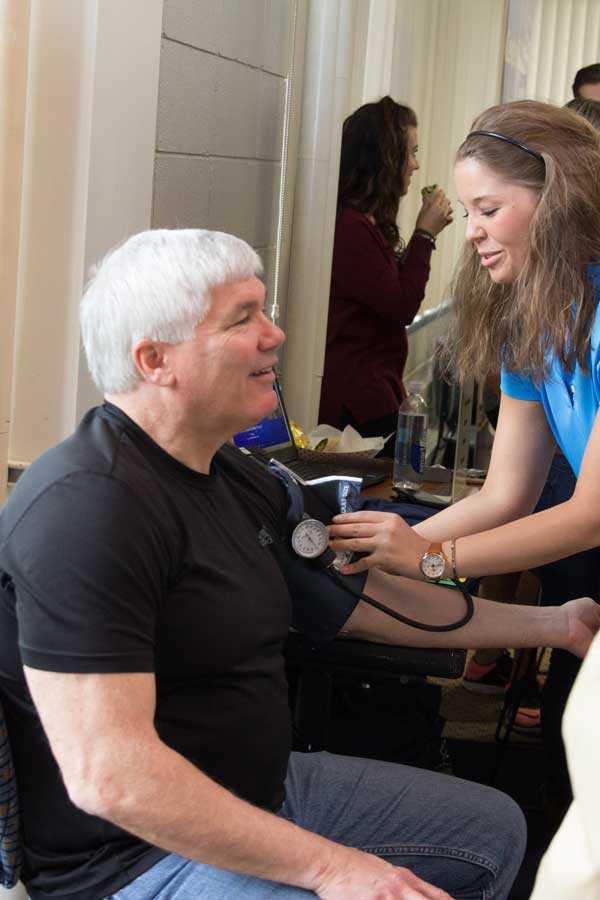
Pre-Physician Assistant
As a physician assistant, you'll practice medicine under the supervision of a licensed physician. You'll examine and treat patients. You'll treat minor injuries. Prescribe medicine. Order and analyze lab tests and X-rays.
Why study pre-physician assistant at Pitt-Bradford?
Physician assistants are in demand. U.S. News & World Report ranked physician assistants third on the list of 100 Best Jobs in 2019.
If that sounds like the career for you, you'll need to earn a physician assistant master's degree. But your first step will be to get your bachelor's degree here. You can choose any major.
What will I learn?
You’ll get a solid foundation in the biological, physical and behavioral sciences, and you’ll take many of the prerequisite courses that graduate programs require.
What can I do with a degree in pre-physician assistant?
You’ll get the required hands-on clinical experiences, opportunities and other highly recommended activities that the physician assistant schools like to see, such as undergraduate research, physician assistant shadowing and community service.
Employers:
- Medical clinics
- Hospitals
- Biomedical research labs
- Physician assistant training programs
Featured Courses
-
BIOL 0212
Human Anatomy And Physiology 1A study of the gross and microscopic anatomy, physiology, and homeostatic mechanisms of the human body, stressing the relationship of structure to function. This semester covers cell types and tissues and the cellular processes of osmosis, diffusion, and active and passive transport; the integumentary system; the skeletal system and joints and bone metabolism; the muscular system and mechanisms of muscular contraction; the nervous system, mechanism of nerve impulse conduction, and the special and somatic senses. Three hours of lecture per week. -
BIOL 1302
MicrobiologyPrinciples of microbiology and immunology including the morphology, physiology, taxonomy, genetics and ecology of micro-0rganisms. Viruses, prokaryotes and eukaryotic micro organisms including algae, fungi and protozoa will be studied.
Program-Related News

Students study McKean County water quality
Grants allow students to spend summer researching.

Students get head start with academy
Early arrival helps first-year students get acquainted with campus and each other.

Students present research at consortium
10 students make trip with faculty to Ridge Environmental Center.